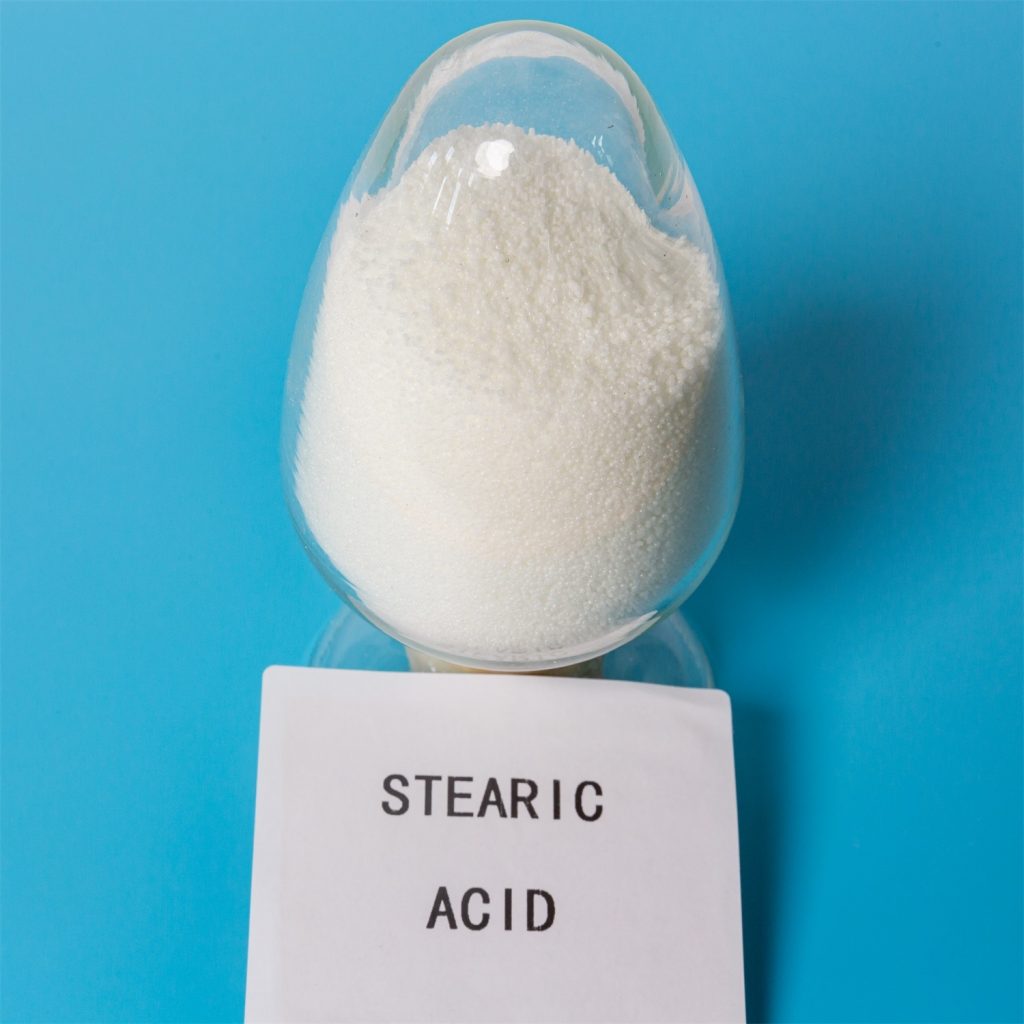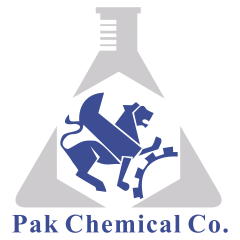Stearic acid is a saturated fatty acid that occurs naturally in many fats and oils. With a typical 18-carbon chain structure, this white and waxy substance may appear inconspicuous at first glance. However, its chemical properties make it an essential component in various industries and applications, ranging from cosmetics to food and even rubber production. Here, we’ll delve into the world of stearic acid to understand its essential applications and importance in our daily lives.
1. Cosmetics and Personal Care Products
Stearic acid plays a crucial role in cosmetic formulations. used in :
- Soaps: Traditional soap-making processes, such as saponification, use stearic acid (often derived from tallow) to produce a hard, long-lasting soap. The acid contributes to the soap’s firmness and creamy lather.
- Lotions and Creams: It acts as a thickening agent, helping the products maintain a consistent texture. Furthermore, its emollient properties help in keeping skin moisturized.
- Make-up products: Its waxy consistency makes it suitable for producing items like lipsticks, where it helps in maintaining shape and longevity.
2. Food Industry (Essential Applications of Stearic Acid)
Stearic acid is categorized as a Generally Recognized As Safe (GRAS) substance by the U.S. Food and Drug Administration, permitting its use in the food industry.
- Food Additive: As an additive, it’s known as E570 and is used to prevent products from becoming oily or separating. Its stable nature ensures that the food’s consistency and taste remain unaffected.
- Confectionery: In the manufacture of candies and confectionery items, stearic acid acts as a hardener.
3. Pharmaceutical Applications
In the world of medicine and healthcare, stearic acid is valued for its binding and emulsifying properties.
- Tablet production: It serves as a binder in pills and tablets, ensuring that they remain cohesive, yet disintegrate appropriately in the digestive system.
- Capsules: Stearic acid is often present in the outer shell of medicinal capsules.
4. Candles and Paraffin Wax Production
Before the advent of modern synthetic materials, stearic acid was a primary component in candle-making due to its long burn time and the clean, odorless flame it produced. Even today, high-quality candles often contain stearic acid to increase their burning time.
5. Rubber Industry (Essential Applications of Stearic Acid)
Stearic acid, playing a pivotal role in the rubber industry, acts as an activator during the vulcanization process. By treating rubber with sulfur at elevated temperatures, vulcanization aims to augment the rubber’s inherent properties. Consequently, with the introduction of stearic acid, there is a marked improvement in the interplay between rubber and sulfur. This synergistic effect ultimately culminates in a superior end product characterized by increased resilience and longevity.
6. Plastic Production
In plastic production, stearic acid functions as a plasticizer and release agent. It imparts flexibility to the plastic, ensuring it doesn’t become too brittle. Furthermore, When using molds, stearic acid facilitates the smooth release of the completed plastic item.
7. Metal Production
Stearic acid is a key ingredient in the production of metal soaps. In metalwork, especially in high-temperature situations, these metal soaps act as lubricants. The presence of stearic acid-based lubricants ensures smoother operations and minimizes wear and tear on machinery.
8. Textile Industry
Fabric treatments and dyeing processes sometimes require stearic acid. It helps to make fibers more pliable, ensuring that they are more receptive to dyes and treatments.
Conclusion (Essential Applications of Stearic Acid)
From cosmetics to industrial processes, stearic acid’s versatility stems from its unique chemical properties. As industries evolve, the demand for this fatty acid continues to grow. Its multifaceted applications underscore its essential role in modern manufacturing and everyday products. Whether we realize it or not, stearic acid touches various aspects of our lives, solidifying its reputation as an indispensable compound.

